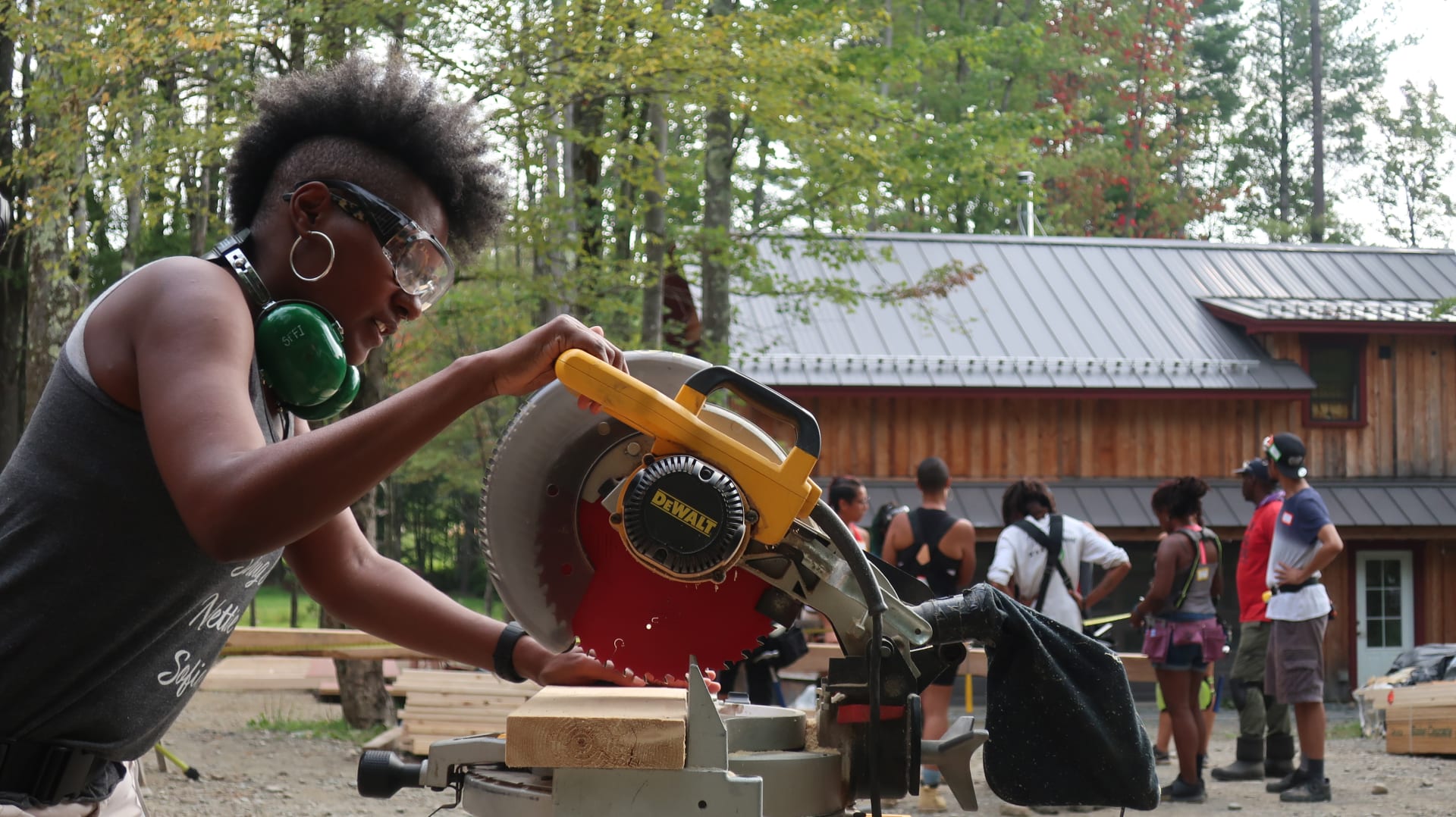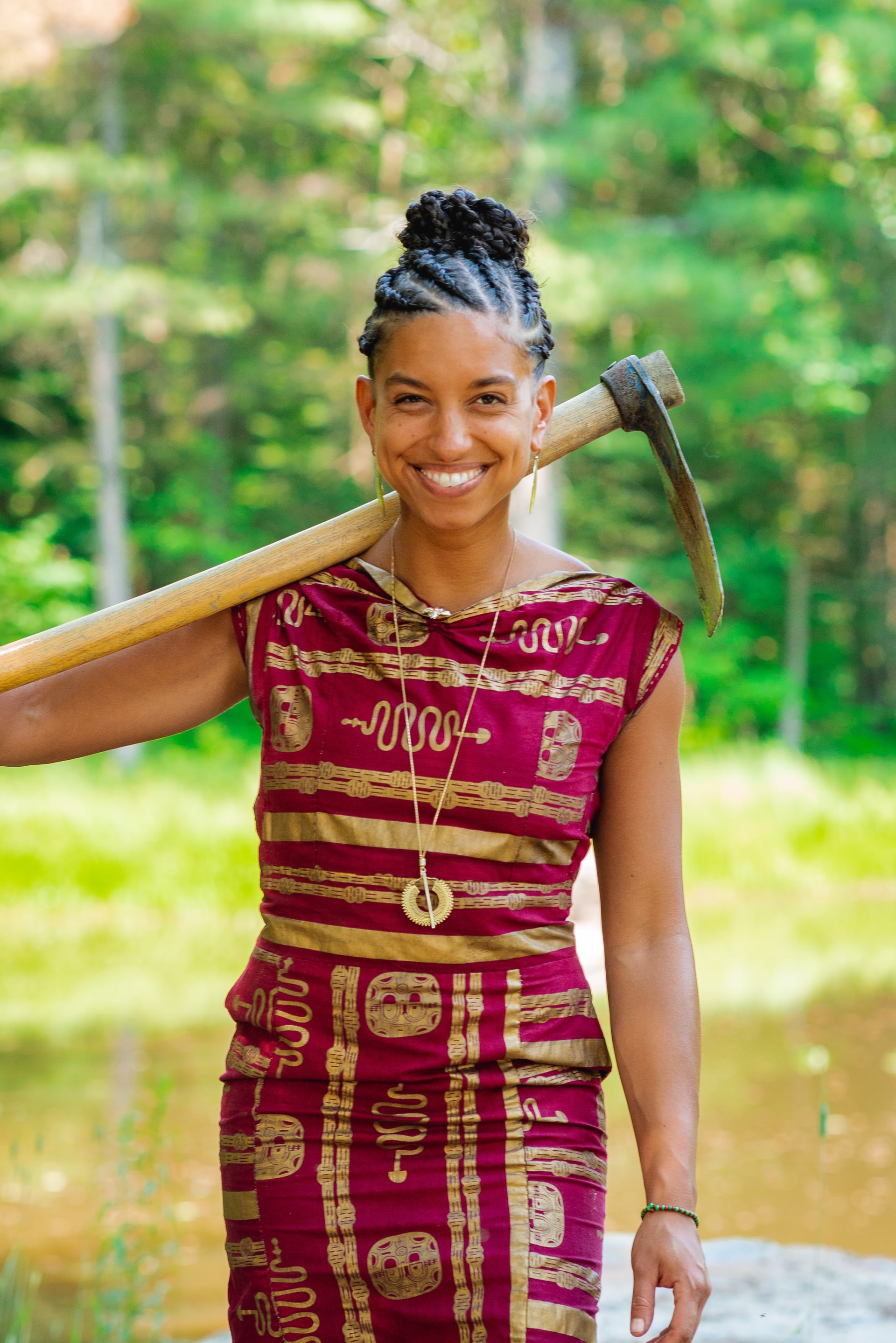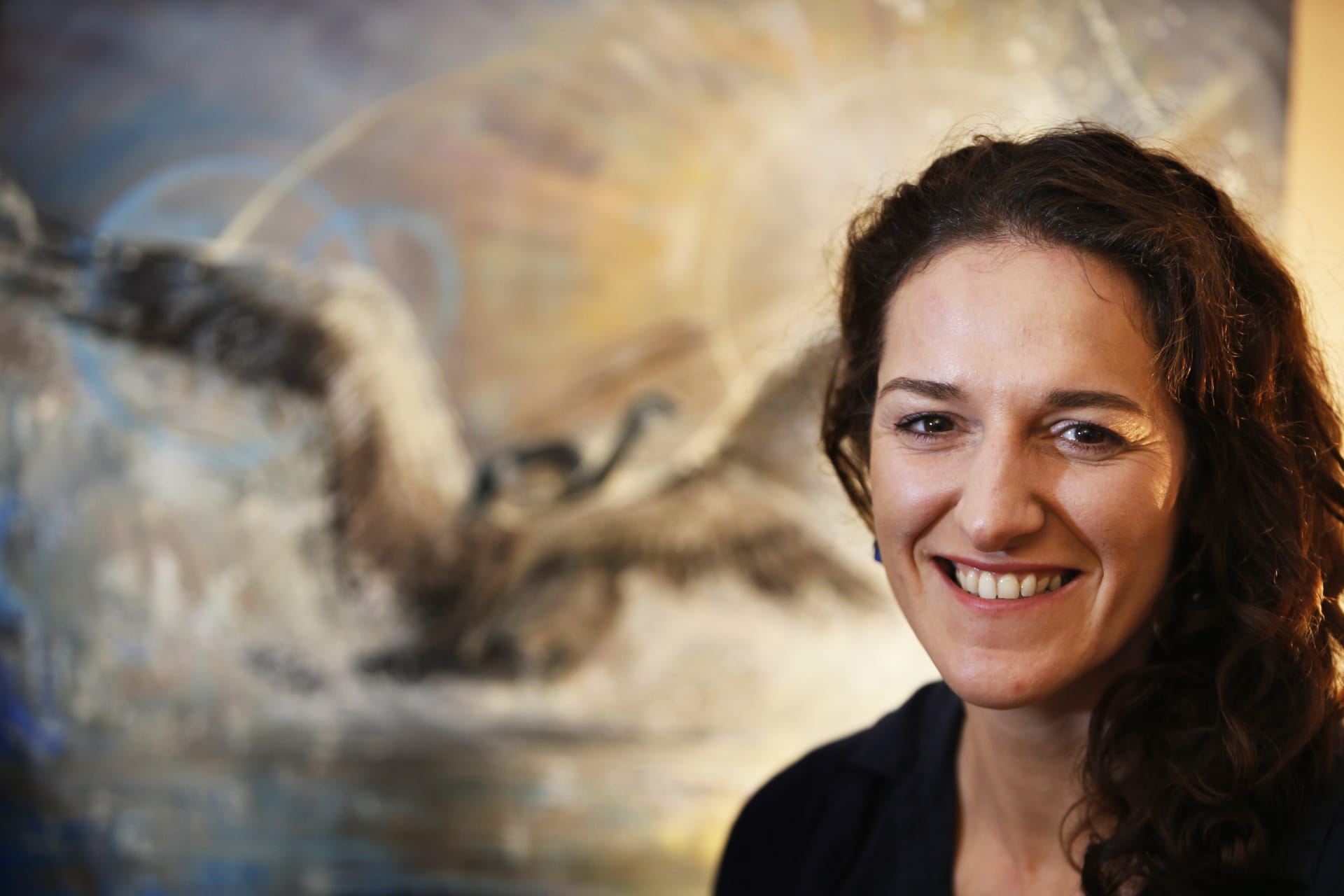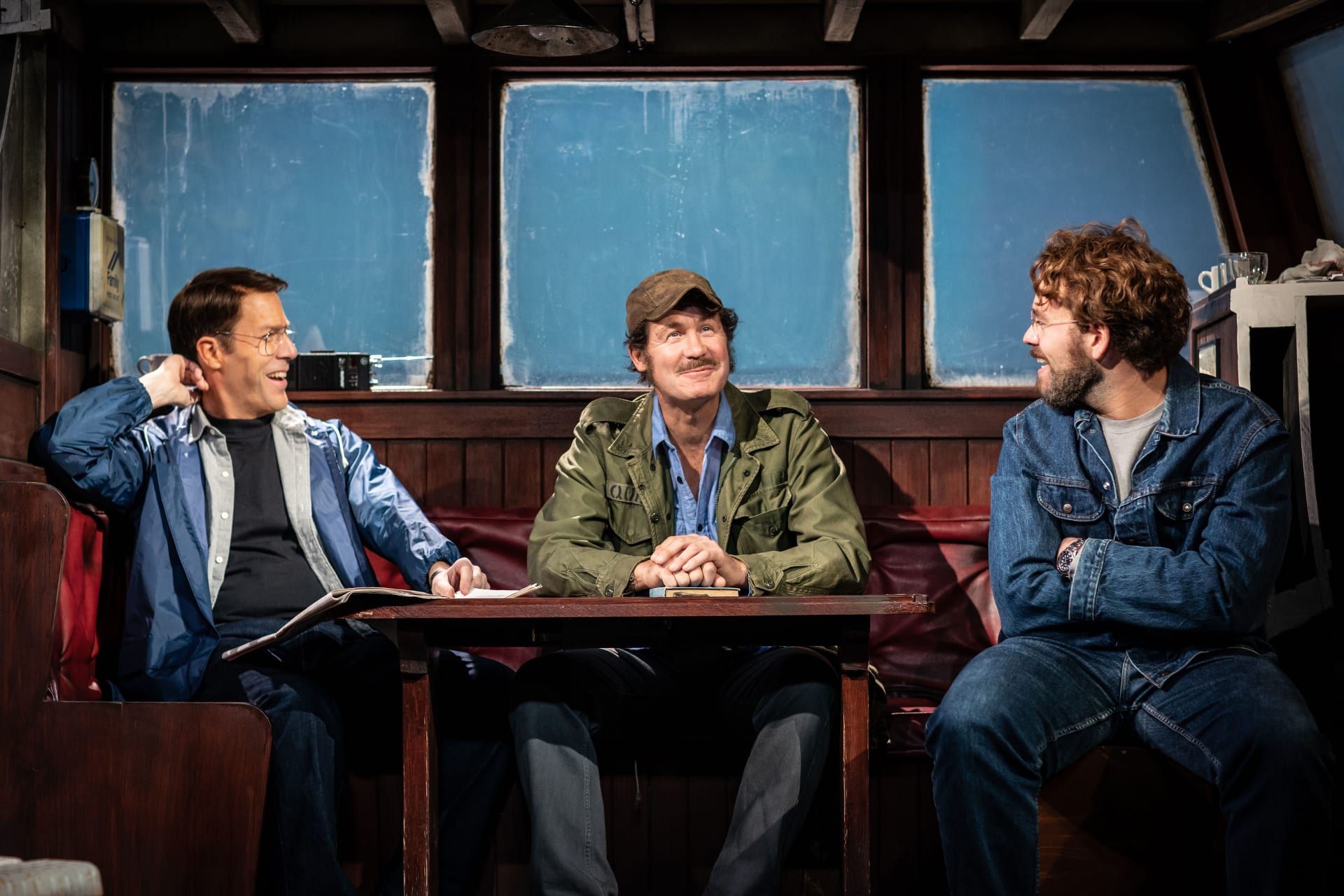Leah Penniman, author, activist and farmer, is committed to ending racism and injustice in our food system. She and her team at Soul Fire Farm in upstate New York are working to increase farmland stewardship by people of colour, promote equity in food access, and train the next generation of activist farmers. Her debut book, Farming While Black, extends these efforts by offering the first comprehensive manual for African-heritage people ready to reclaim their rightful place of dignified agency in the food system, with a concise ‘how-to’ for all aspects of small-scale farming. Ahead of her keynote speech at this month’s Oxford Real Farming Conference, we caught up with the recently ‘retired’ high school science teacher to talk food apartheid, urban farming and white supremacy.
What is Soul Fire Farm and why does it exist?
Soul Fire Farm is a black and indigenous-led community organisation dedicated to ending racism in the food system. We are on about 80 acres of mountain land in rural New York State. There are eight of us who are part of the collective and we have been around since 2010. There are three main things we do. The first is that we restore this land using Afro-indigenous agricultural practices – cover cropping, raised beds, no-till, zero carbon methodology – then use all of the produce of the land (meat, eggs, herbs, vegetables) and provide that at no or low cost to communities who need the food – refugee communities, incarcerated people, and so forth. The second thing is we are a training centre that works with several thousand people a year who want to learn how to farm and how to live on land. So we run day- and week-long courses here, then provide mentorship afterwards, and help people land jobs and find territory. The third and final thing is we are organisers. The United States has some pretty messed up policies and structures in place that make it very difficult to be a farmer or farmworker, to access land, access good food. So, we’re working on policy change and also reparation – returning land and resources to the people from whom it was taken historically though transfers of title and wealth.
When did you first become aware of the institutional racism in the farming industry?
As a teenager I worked at several farms across the State of Massachusetts. A few years into that, I was quite in love with farming – attending all of the conferences, reading all the books – and came to see that the people who were put up as leaders in the movement were mostly white men. I started to wonder if I had chosen the wrong vocation, if somehow I was being a traitor to my people or just not contributing what I had to offer in the best way. When I met Karen Washington, a black farmer, in my early twenties, I shared this dilemma with her. She said, ‘There’s more to it than you’re seeing, our people really have a long and noble history of relationship to land, hang in there.’ That prompted me to start doing some research about the food system and the history of black farmers, and that’s when I uncovered the narratives that I so often talk about today.
Your book, Farming While Black, talks about a ‘food apartheid’ – what does that mean?
In the US there’s a term called ‘food desert’, which the government uses to refer to a census tract that is both low income and has a scarcity of supermarkets. The challenge with that term is that a desert implies something natural – because a desert is an ecosystem – and what we actually have is a human-created system of segregation because of a long legacy of housing discrimination, exclusionary zoning and redlining; all of these structural things that have resulted in a system where if you are white in the US, you’re four times as likely to have a supermarket in your neighbourhood than if you are black. We call it food apartheid to represent more accurately the idea that people really created an unfair and unjust system, and also to empower us to undo it. You can’t really undo a desert, but you can certainly undo apartheid with policy shifts.
The book’s had some brilliant testimonials, which endorsement has meant the most to you?
You’re right, there has been some really high-profile praise for the book, but I think what’s meant the most for me is actually when I go to the south – where most of the black farmers still live and thrive – and these older black farmers (men and women in their seventies, eighties, even nineties) tell me that the book means a lot to them and gives them hope. These people aren’t known to the public, don't have any fame or glory, but they know the land well and went through the struggles described in the book. To have it feel valuable to them and accurate I think is the highest praise.
Readers might be surprised at just how many urban farms there are – farms in the Bronx – you’re raising awareness.
That’s the hope. One of the demographic trends that seems to have happened, I don’t think it’s well studied, but with the Great Migration – when about 6 million African Americans fled the racial violence of the south and moved to the north and the mid-west to cities – we did bring our agrarian traditions with us. So all of these urban gardens are popping up between the 1960s and 1980s, led by folks who were farmers or sharecroppers in the south. There’s not as much of a distinction between urban and rural farms as we would think, and I think they come from the same impulse of wanting to feed our communities and have some social security for our families. I really long for a time when we have more collaboration and communication between children of the Great Migration who are gardening in urban spaces and those who stay back in the south, because I think we need each other to survive.
You ask black visitors to Soul Fire Farm what they first associate with farming and they say slavery or plantation. Can you envisage a time when they don’t say that?
I can. First impression is based on what people are exposed to and because so many of our people are growing up in urban spaces where they never get to be on land, go to a farm, or even garden, the only images they see of farming are from their textbooks which show enslaved Africans bending over in a field, or from a documentary or maybe a family story. But I think through the work we’re doing (and other organisations in our network) we’re changing what that first exposure to the land is. If it’s a delightful experience of gardening or a really fun field trip to a black-run farm, that changes that imprint. I imagine in a generation that will not be the predominant reaction to getting onto the land here.
The cooking and preserving chapter of Farming While Black is really wholesome, packed with recipes of an African Heritage diet – is that the diet you personally follow?
My diet is eclectic. I don't follow an exclusively African Heritage diet – my husband is a Sephardic Jew who’s gluten free. But I have been eating many of those recipes, predominantly traditional foods, at least since my early twenties.
The African Heritage diet doesn’t require people to cut out meat or fish entirely.
Most traditional diets don’t. I have nothing against vegans, but I think it’s a myth that veganism will solve our planetary woes and that it’s an appropriate diet for everyone. For example, we’re in a quite cold climate, and so in order to get adequate calories throughout the six- or seven-month winter, animal protein is very important. Ruminants can convert grass into edible protein and people can’t eat that. If I lived in Jamaica and breadfruit and mangos fell in my lap, I might eat fish and fruit, but up here in these northern climates we have a diet that needs to be adapted to the region. And there are certainly sustainable and carbon neutral ways to have an omnivore diet – so I think it’s more nuanced than it’s sometimes made out to be.
Outside of the farming industry, are you seeing racism that takes you back to that which you experienced at school?
Unfortunately racism and white supremacy are quite foundational to the structures here in the United States, so I don’t think it’s possible to go a day without seeing it. I’m not talking about interpersonal slights like calling people the N-word, I see that from time to time, but I’m talking about how power and resources are distributed. Everything in this country from who owns the land to who gets to govern, who controls the corporations, what type of schools our children have access to, the maternal mortality rates in hospitals… all of that has deep racial bias built into it, so it’s pervasive.
Could that change this year…?
No, it couldn’t. It took about 500 years to create it, it’s in the Declaration of Independence, and the constitution is built on these ideas of white supremacy. So it’s going to take some time and a lot of effort. Our nation has been unable to even pass a bill called H.R.40, which would commission the study of reparation, so I think it will be some time before the political will is there to really look at the past – the genocide of native people, enslavement – and figure out what we’re going to do going forward to correct those ills.
This month you’re coming to the Oxford Real Farming Conference. How relevant is the story of Soul Fire Farm to people in the UK?
I’ve been thinking a lot about it because so much of how Soul Fire Farm came about is very much in the context of these lands – the theft of land and displacement of black farmers. I have a lot to learn about the UK, and the international context for all this. We have had several people from the UK come to Soul Fire Farm and been over-the-moon enthusiastic about what they see as a replicability of a model that centres people of colour as farmers, that provides food to the community, that uses regenerative methods, that works for the rights of farmworkers. So I think, despite the local and historical context, there’s some universal elements about the work we’re doing that hopefully can be applied in the UK.
You also worked as a school teacher.
I just ‘retired’, which I’m putting in air quotes because I’m not that old, but yeah, I spent 17 years as a high school science teacher. I wrapped up that journey last semester, so now I’m not running back and forth between two jobs. I’m at the farm full-time, which is a much-needed shift.
Well, congratulations, because that’s a lot of years teaching.
Thank you, it was very joyful, and in many ways the work at Soul Fire is quite similar because we’re an educational farm, this land is our classroom. So I’m not leaving behind being an educator.










